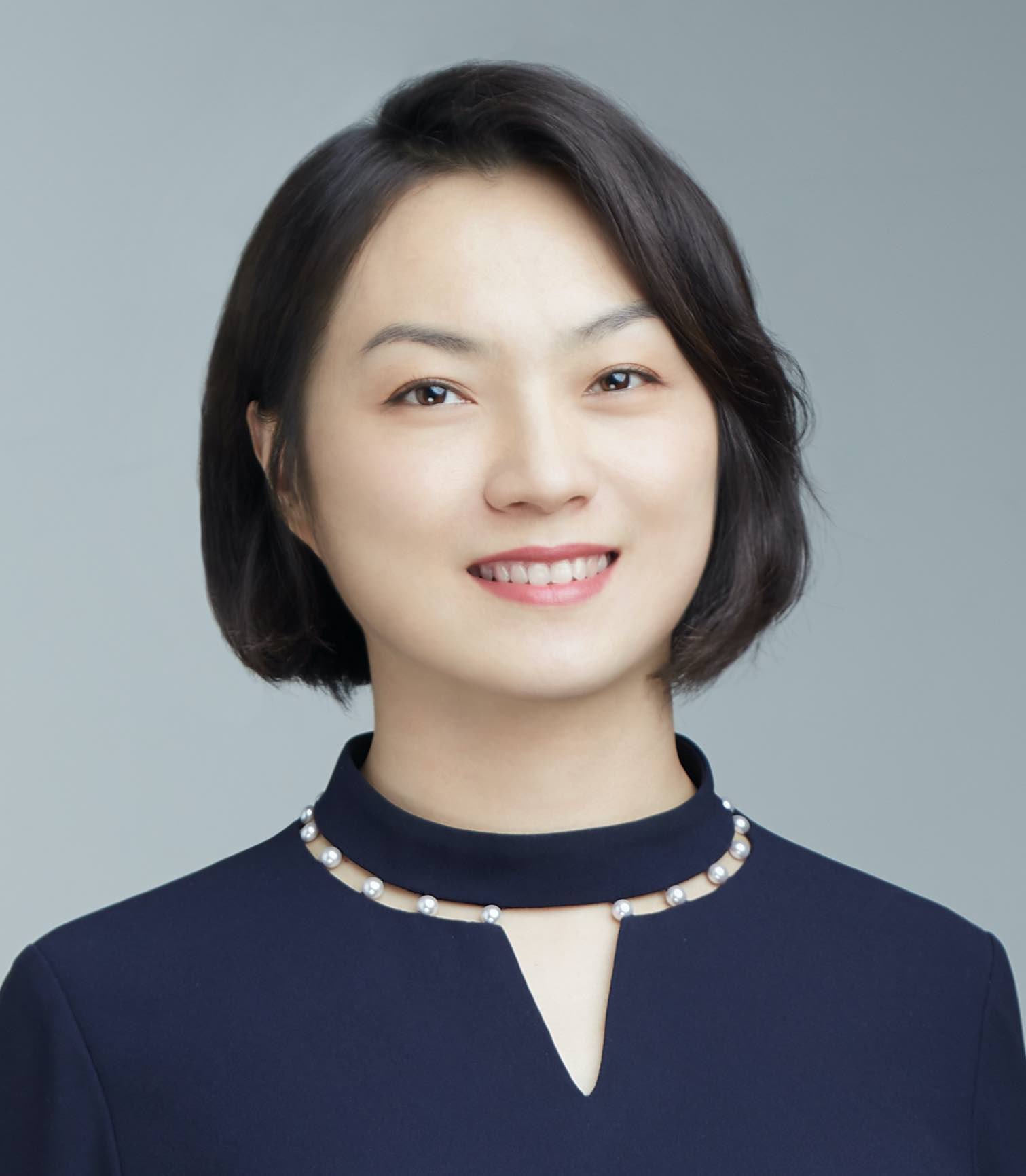
Yang Feng
Professor
Email: 
Address: No. 6 Kexueyuan South Road, Haidian District, Beijing, China, 100190
Bio
Yang Feng is professor at Institute of Computing Technology, Chinese Academy of Sciences (ICT/CAS) where she got her phD degree. She worked with Prof. Trevor Cohn and Dr. Kevin Knight in University of Sheffield and Information Sciences Institute, University of Southern California from 2011 to 2014. Now she leads the natural language process group in ICT/CAS and her research interests include artifical intelligence and natural language processing, mainly focusing on large language models and machine translation. She is the recipient of the Best Long Paper Award of ACL 2019.
News
- We have 6 papers accepted by EMNLP 2023.
- We have 4 papers accepted by NeurIPS 2023.
- We released a paper about BayLing, an instruction-following LLM, please refer to https://nlp.ict.ac.cn/bayling for more details.
- We have 5 papers accepted by ACL 2023.
- We have 2 papers accepted by ICLR 2023.
- I and Chenze Shao gave a tutorial in EMNLP 2022 about "Non-Autoregressive Models for Fast Sequence Generation".
Publications
Selected Publications: [More Publications]
- Qingkai Fang, Yan Zhou, Yang Feng. DASpeech: Directed Acyclic Transformer for Fast and High-quality Speech-to-Speech Translation. NeurIPS 2023.
- Shaolei Zhang, Yang Feng. Unified Segment-to-Segment Framework for Simultaneous Sequence Generation. NeurIPS 2023.
- Chenze Shao, Zhengrui Ma, Min Zhang, Yang Feng. Beyond MLE: Convex Loss for Text Generation. NeurIPS 2023.
- Shangtong Gui, Chenze Shao, Zhengrui Ma, Xishan Zhang, Yunji Chen, Yang Feng. Non-autoregressive Machine Translation with Probabilistic Context-free Grammar. NeurIPS 2023.
- Yang Feng, Chenze Shao. Non-Autoregressive Models for Fast Sequence Generation. In Proceedings of EMNLP 2022: Tutorial Abstracts.
- Chenze Shao, Yang Feng. Exploring Non-Monotonic Latent Alignments for Non-Autoregressive Machine Translation. NeurIPS 2022 (Spotlight).
Qingkai Fang, Yang Feng. Neural Machine Translation with Phrase-Level Universal Visual Representations. In Proceedings of ACL 2022.
Chenze Shao, Yang Feng, Jinchao Zhang, Fandong Meng, Jie Zhou. Sequence-Level Training for Non-Autoregressive Neural Machine Translation. Computational Linguistics (2020).
Wen Zhang, Yang Feng, Fandong Meng, Di You, Qun Liu. Bridging the Gap between Training and Inference for Neural Machine Translation. In Proceedings of ACL 2019. (ACL Best Long Paper Award).
Open Source
 BayLing Large Language Model
BayLing Large Language Model
[Homepage] [Demo] [Paper] [Code] [Model-7b] [Model-13b]
The existing LLMs are usually focused on English, leading to inferior performance in non-English languages. In order to improve the performance for non-English languages, it is necessary to collect language-specific training data for foundation LLMs and construct language-specific instructions for instruction tuning, both of which are heavy loads. To minimize human workload, we propose to transfer the capabilities of language generation and instruction following from English to other languages through an interactive translation task. We have developed BayLing, an instruction-following LLM by utilizing LLaMA as the foundation LLM and automatically constructing interactive translation instructions for instructing tuning. Extensive assessments demonstrate that BayLing achieves comparable performance to GPT-3.5-turbo, despite utilizing a considerably smaller parameter size of only 13 billion.
On June 21, 2023,we publish the paper of BayLing on Arxiv-- Bridging Cross-lingual Alignment and Instruction Following through Interactive Translation for Large Language Models,open source the code, model-7b and model-13b, and release the online demo as well.
Teaching
- Principle and Applications of Large Language Models: Summer 2023
- Natural Language Processing: Fall 2022-2023
Honors & Distinctions
- Weichang Qian Chinese Information Processing Science&Technology Award--Hanwang Youth Award First Prize
- "Young Scientist" of Technical Committee on NLP, China Computer Federation
- "Outstanding Contribution Award" of Chinese Association of Artifical Intelligence
- ICT/CAS “Brilliant Star”, 2019
- Best Long Paper Award of ACL 2019
- ICT/CAS “Baixing Talent Introduction Program”
Personal Services
- Associate Editor: IEEE Transactions on Asian and Low-Resource Language Information Processing(2022-2023);
- Editorial Board Member:Ariticial Intelligence; The Northern European Journal of Language Technology;
- Senior Area Chair: EACL 2024; AACL 2022; EMNLP2021;
- Area Chair: EACL2023; ACL2021;EMNLP2020; COLING 2018;
- Organizing Committee: ACL 2024 Demonstration Co-chair; ACL 2023 Workshop Co-chair; EMNLP 2020 Virtual Infra-structure Co-chair;
- ARR Permanent Senior Action Editor;
- Doctorate Committee Assessor of KU Leuven;
- Dissertation Committee Member of Worcester Polytechnic Institute.
Students
Ph.D Candidates:
Shaolei Zhang, 2020-present
Qingkai Fang, 2021-present
Shoutao Guo, 2022-present
Kehao Zhang, 2022-present
Mengyu Bu, 2023-present
Yan Zhou, 2023-present
Zhuocheng Zhang, 2020-present (Co-advising with Prof. Min Zhang)
Zhengrui Ma, 2021-present (Co-advising with Prof. Min Zhang)
Master Candidates:
Langlin Huang, 2021-present
Longxiang Liu, 2021-present
Ziwen Yan, 2022-present
Zhe Yang, 2022-present
- Tian Yu, 2023-present
Alumni
Ph.D:
Jiao Ou, Graduated in 2023
Shuhao Gu, Graduated in 2023
Chenze Shao, Graduated in 2023
Shuman Liu, Graduated in 2023 (Co-advising with Prof. Qun Liu)
Wen Zhang, Graduated in 2019 (Co-advising with Prof. Qun Liu)
Master:
Xuanfu Wu, Graduated in 2023
Dengji Guo, Graduated in 2022
Zekang Li, Graduated in 2022
Jicheng Li, Graduated in 2022
Yong Shan, Graduated in 2021
Shugen Wang, Graduated in 2020 (Co-advising with Prof. Qun Liu)
Jingyu Li, Graduated in 2019 (Co-advising with Prof. Qun Liu)
Haiyang Xue, Graduated in 2019 (Co-advising with Prof. Qun Liu) .
Updated on April 16, 2024.
